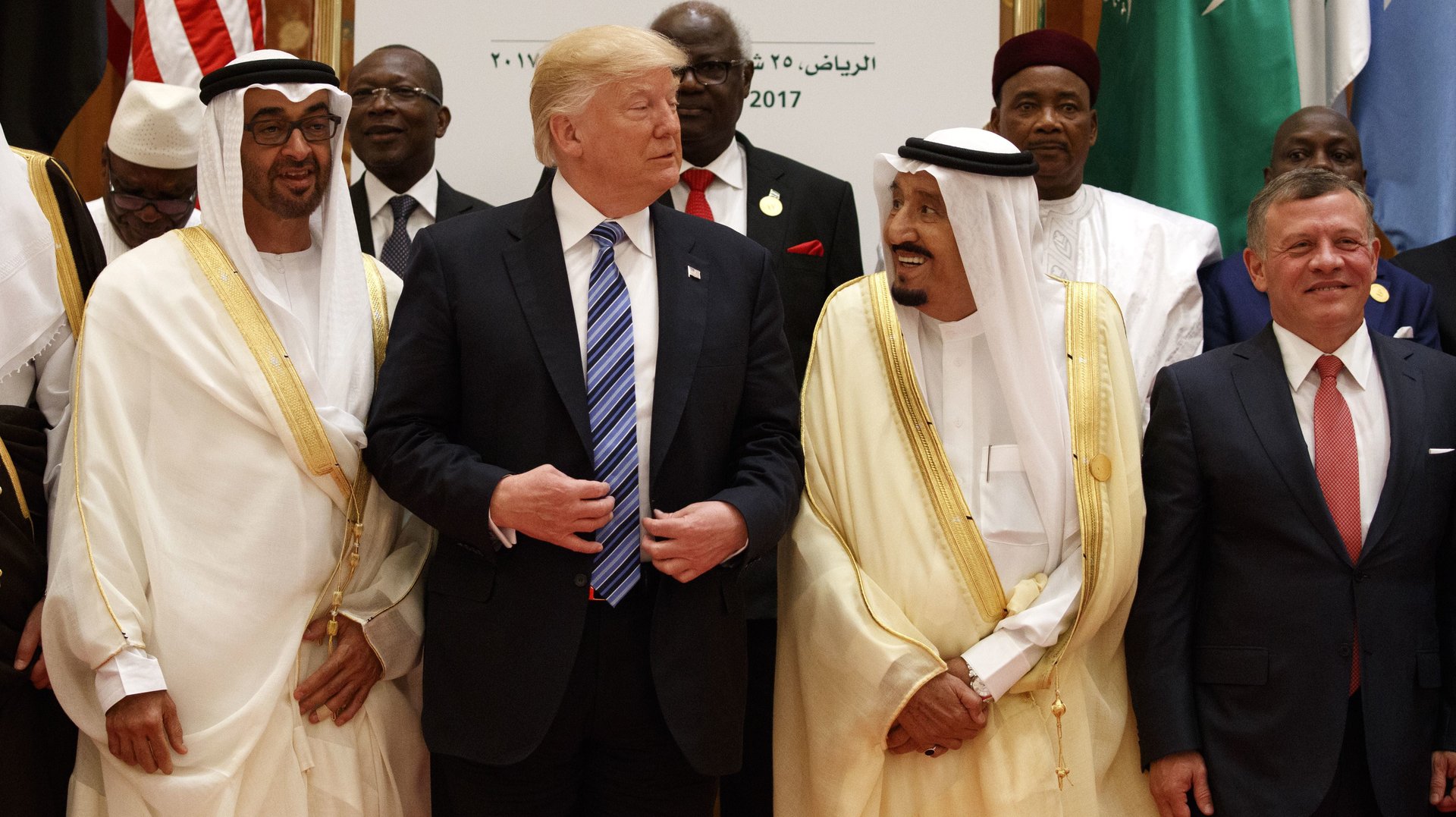Donald Trump has achieved his travel ban—just not in the US
In his first foreign trip as US president, Donald Trump “united the entire Muslim world in a way that it really hasn’t been in many years,” one of his officials told the press. Well, if so, it didn’t stay united long.


In his first foreign trip as US president, Donald Trump “united the entire Muslim world in a way that it really hasn’t been in many years,” one of his officials told the press. Well, if so, it didn’t stay united long.
Today (Jun. 5), six Arab countries abruptly cut diplomatic ties with Qatar—an American ally hosting one of the largest US military bases in the Middle East, and instrumental to the launch of airstrikes against ISIL. The group, led by Bahrain and Saudi Arabia, so far includes Egypt, the United Arab Emirates (UAE), the government of the eastern part of Libya (which isn’t UN-recognized), and the Maldives. Bahrain, Saudi Arabia and the UAE have banned travel to and from Qatar, given Qatari diplomats 48 hours to leave and other Qatari citizens two weeks. Several airlines in the region have already stopped flights to Qatar.
For Trump, who this morning has been tweeting angrily about the need for a “travel ban” in the US after the terrorist attacks in London, it may not be the outcome he had in mind.
Two weeks ago Trump met the rulers of several Middle Eastern countries to discuss measures to limit Iran’s power in the region, a gathering which he had hoped “may someday be remembered as the beginning of peace in the Middle East.” He also announced $110 billion-worth of weapons sales to Saudi Arabia—though none of it corresponds to actual contracts, and all of it had been announced before, according to Bruce Riedel, a security expert at the Brookings Institution. In doing so Trump implicitly endorsed (paywall) the idea of Saudi Arabia as leader of the Arab world and of the anti-ISIL efforts—a debatable position considering that Saudi Arabia, along with Qatar and Kuwait, has financed some of the very same terrorist forces it is helping America fight, according to leaked intelligence reports (paywall).
Right after Trump left the region, tensions surged between countries closer to Saudi Arabia (such as Bahrain, and Egypt) and others, such Qatar, with ties to Iran. Qatar and Saudi Arabia embarked on a war of words about each country’s relationship to terrorism, while Bahrain and Egypt launched tough crackdowns on dissidents in their countries.
Now the war of words has escalated into a cutting-off of ties. A Saudi press agency statement said the move was necessary because of “grave violations being committed by the authorities in Doha over the past years in secret and public,” including giving shelter to various terrorist groups, some of them backed by Iran.
What’s behind it all? Qatar has for decades been a thorn in the side of Saudi Arabia and other Arab states because it gives shelter to the Muslim Brotherhood, the Islamist political movement that threatens many of the region’s autocratic leaders, as well as allegedly supporting pro-Iran militias. During the 2011 Arab Spring, it and its homegrown TV news network, al-Jazeera, took the side of Islamists and revolutionaries against entrenched regimes. It’s maintained its diplomatic clout in part by being the home of US Central Command (Centcom) and the US’s largest air base in the region, serving as a useful backchannel for contacts with extremists, and hosting branches of prestigious Western universities. That led to an uneasy truce between it and other nations.
Trump’s support for Saudi Arabia with his visit seems to have upset that balance, making the Saudis feel empowered to put the small emirate in its proper place. Egypt, the region’s most populous country, where the Muslim Brotherhood won elections after the Arab Spring only to be pushed out by a military coup in 2013, will have been only too happy to join in.
What isn’t yet clear is what this means for Centcom. US officials have played down the implications, if the diplomatic and transport blockade on Qatar makes US military operations harder to carry out, the Saudis might be getting a tap on the shoulder. Perhaps, if some of that $110 billion can be turned into a real contract, they’ll become more pliable.